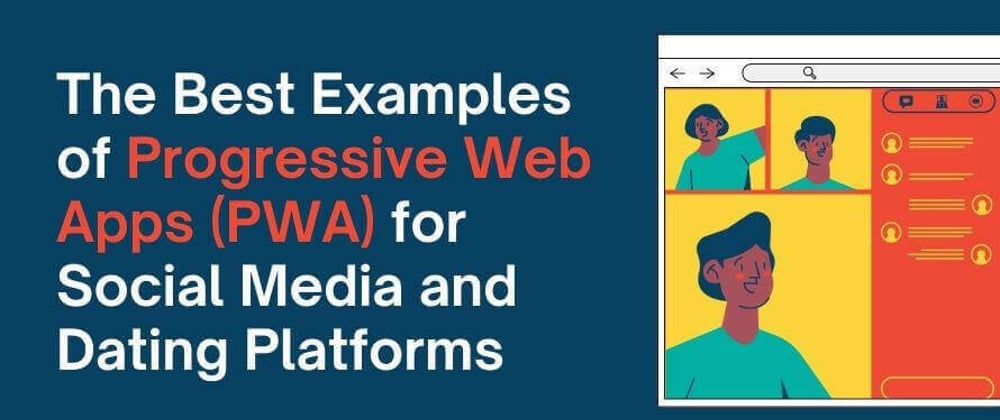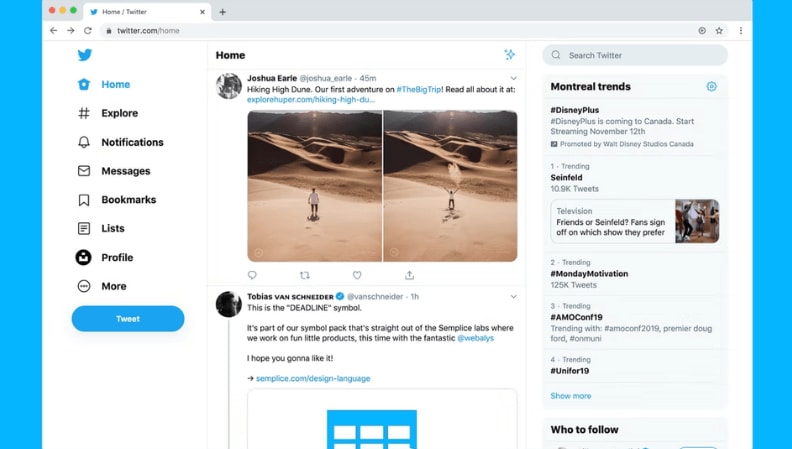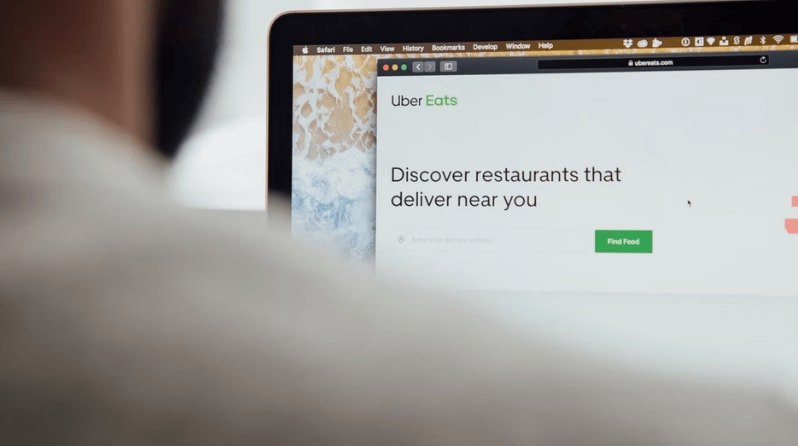The concept of progressive web apps, or PWAs, has gained popularity over the last year and it’s continuing to grow with more and more companies adding it to their list of features and services. What exactly are these PWA apps? Read on to find out more about what they are, the best PWA app examples, and how you can implement your own in order to help you take advantage of this newer trend in digital marketing as you pursue the creation of your very own website or app.
What is a Progressive Web App?
A progressive web app (PWA) is a type of mobile app that uses modern web technologies to deliver an app-like experience to users. PWAs are usually responsive, meaning they can be used on any device with a browser: phones, tablets, desktop computers, and even watches. They typically store data locally on a device so it can work offline as well. Finally, PWAs are updated in real-time via content delivery networks (CDNs). The idea behind progressive web apps is to enable developers to build web apps that look and feel like native apps using open standards.
Why Are Progressive Web Apps Important?
Progressive web apps are a new type of experience that combine key aspects of mobile applications and websites. Progressive web apps have many advantages over traditional web pages, including:
- quick load times;
- offline use capabilities;
- easier installation through an app store;
- push notifications (if you choose to integrate them);
- better search rankings on mobile devices;
- more control over how content is displayed;
- streamlined access to certain device APIs and more.
Progressive web apps offer these benefits while still displaying like a traditional website in most cases. These progressive experiences are important because they represent an alternative way forward that's just as good as native apps but opens up new doors thanks to technology such as service workers.
Do You Need a PWA Version of Your Own App?
You can easily see if you need a progressive web app (PWA) version of your app with a simple test. The process is straightforward: do you own a dating app? If you do, and if your app has an offline mode with functional features and data storage, then you probably have room to create a PWA version of your own dating app.
If you have yet to develop your own dating app, keep in mind that you will most likely want to allocate time, funds, and resources to creating a progressive web app (PWA) version of your app so that it is the most successful and robust it can be to attract new users to your platform. We know that when you put all your time and effort into achieving your goal of developing a high-quality app, you want to do everything you can to make it shine, and that’s where Skadate can really help.
How Can PWAs Benefit Your Online Dating Business?
There are a couple of ways that progressive web apps can improve your dating business. First, PWA gives your users access to all features on any device. This means that it isn’t just desktop computers – you can also reach out to customers with smartphones or tablets. PWAs work in different browsers as well; they’re not limited to just popular browsers like Chrome which many people use. With nearly half of online activity happening through mobile devices, being able to bring your site with you everywhere is extremely important!
The second way PWA can benefit your dating business is by helping you reach potential customers easier. After someone downloads your app on their smartphone, they’ll be able to bookmark it to their home screen, where it will appear like any other app – no need for bookmarks or searching later! Lastly, if your progressive web app works offline too, then there’s even more convenience involved. Once your customer installs your progressive web app and goes offline, they’ll still have access to it when they reconnect again (as long as they didn’t close it).
A Look at the Best PWA Examples
To get a more clear picture of the power of progressive web apps (PWAs), let’s take a closer look at some real-life examples. The following popular social media and dating apps feature PWA versions and as a result, are extremely user-friendly, adaptive, and have massive followings. Take inspiration from them as you plan for your own app and PWA version.
More than 700 million people use Instagram, a photo-sharing app that’s one of Snapchat’s chief competitors. What makes Instagram such a great example of a progressive web app is how it became such a powerful brand without even being connected to its desktop or web experience. You can log into Instagram from your mobile device, use it like any other native app, and view photos within minutes without even realizing you’re using an HTML5 website. On top of that, because Facebook owns Instagram, users never need to go to another website to find out about new updates or information on their favorite accounts—everything they need is right in their newsfeed on Facebook.
Snapchat
As a quick recap, a progressive web app is basically a website that behaves like an app. Google, Mozilla, and Apple are big proponents of PWAs and now major websites are finally starting to embrace them as well. Snapchat is one of the biggest progressive web app (PWA) examples out there; it’s blazing trails by merging two apps into one: a social media platform and a dating app (they recently rolled out their Tinder-like camera feature on Android). This approach not only reduces bloat but opens up possibilities we haven’t yet imagined. It’s also good news for users who hate having to download a separate app to use every service they like. Snapchat has been a trailblazer for social media apps in general. Their platform supports content that can only be viewed by recipients once or for 24 hours which has since been adapted on other platforms like Instagram which has since rolled out its stories feature which allows users to post photos or videos that disappear after one day.
Tinder
It's not a regular app: Tinder uses a progressive web app (PWA) to make a web-like experience available to users on mobile devices. In fact, Tinder is one of many companies that has adopted PWA development as a method of engaging with customers more effectively. This approach saves time and costs by combining most of the features of native apps into an easy-to-navigate web platform that can be downloaded by both iOS users (using Safari) and Android users (using Chrome). The result is a mobile app that looks, feels, and functions just like native apps—but requires no additional hardware to use. That’s the beauty of the progressive web app revolution!
The Internet is littered with a plethora of social media networks, but one, in particular, has stood out as a great example of what progressive web app development can be - Twitter.
Since its inception, Twitter has only gotten better. Thanks to recent updates, it’s easier than ever to follow trends, find new people to talk to, and interact with others on their platform—and all of that is thanks to progressive web app (PWA) development. A few of Twitter’s most impressive features include fast-loading times - pages load about four times faster than they used to because Twitter limits mobile data usage by default. This enhances the user experience and keeps enthusiasts coming back to the platform because it is simple and fast to use and share ideas.
Bumble
Founded in 2014, Bumble is a dating app that prioritizes women's safety. It has a clear sense of design with intuitive features. Bumble is one of many examples of dating apps that use progressive web app technology to improve users' experience. After downloading Bumble, users don't have to sign in through a browser every time they use it because everything is stored on their phones. The app offers push notifications when users receive a message or match with someone else, which means no more wondering if you've missed out on anything—you'll know right away!
A great example of a progressive web app is the Pinterest mobile app. It uses responsive design, letting you use it the same way whether you're on your phone or a desktop. It also uses service workers to give you offline access so that you can check out items while in the store without worrying about data charges.
Not to mention, its algorithm is fully optimized to match your interests with exactly what you're looking for in an app--which is something we all want from our favorite dating sites as well! Plus, with easy browsing and lots of inspiration at your fingertips on this platform, it's easy for users to spend more time on the app which causes them to view more ads and purchase more products, making the profitability of Pinterest grow as well.
BMW
Progressive web apps often come with faster load times, increased connectivity, a reduced dependency on downloads, as well as provide a more user-friendly experience across multiple platforms. BMW is one of many progressive web app development companies that’s helped to bring improved technology to their apps in an effort to help users enjoy their content or services in even better ways.
For example, BMW allows users to connect with their cars through its free BMW Connected app, which provides a way for drivers to easily manage navigation and communication settings. In addition, BMW’s app includes online access through information such as vehicle data from anywhere in your home country or abroad; you can also use it to create custom recommendations based on where you are traveling.
Uber
Everyone has heard of Uber before, a company that has made global headlines because of its revolutionary ideas. Uber is changing transportation forever, with options like UberPool. However, it’s not just a technology company; it’s also very socially conscious. Its app can do much more than what most people realize.
The entire platform is essentially a progressive web app: It’s fast to load and easy to use, even on poor connections, which makes it perfect for mobile users. There are no in-app purchases or any ads that get in your way when you’re using it; instead, there are clean links to help you rate drivers and read reviews without interrupting your experience.
And best of all? This means there’s nothing to download or install; simply open up your browser and go. That’s how progressive web apps work! If you want an example of how they work at their finest, look no further than Uber.
Forbes
Forbes has been a pioneer in progressive web app development. In fact, Forbes is one of the very few news websites to offer readers an app that loads quickly and works seamlessly on almost any browser. Their strategy is a great example of how technology can be leveraged to ensure users have access to what they need no matter where they are. An amazing experience in which you don’t have to worry about broken links or slow performance, Forbes has clearly proven that PWAs are one of today’s best web technologies.
Starbucks
Progressive web apps, or PWAs, are a relatively new form of web app that combine the speed of a mobile app with the capabilities of a normal website. In the past few years, companies like Starbucks have started to adopt PWA technology and it's great to see! The Starbucks mobile app is the epitome of a progressive web app—it's a fast, friendly experience that has all of your favorite Starbucks drink options on hand and easy to use.
If you can't make it into your local Starbucks shop, you can still have all the functionality of an in-store barista at your fingertips. For coffee lovers, the fast and seamless app is just as addicting as caffeine!
Trivago
Unlike most of its competition, Trivago is a progressive web app. This means that users can access Trivago regardless of what device they’re using. They don’t have to download an app to their smartphone or even add it to their home screen—they can just load up a URL directly on their browser and start browsing right away.
Progressive web apps are also easy to optimize, so Trivago was able to improve its search functionality while making it easy for users to book hotels directly from within its app; that’s in addition to all of its other features like hotel reviews, maps, tours, FAQs, etc.
Feeling Inspired?
Contact Skadate today and get started on creating a progressive web app (PWA) version of your very own dating app.
How Skadate Can Help
Skadate is a dating and matchmaking development company that can create and launch your progressive web app (PWA) as quickly as possible.
The standard approach to web application development takes a lot longer and is actually less responsive. Skadate also has access to a large network of partners, clients, and publishers which provides us with deeper insight into consumer needs and ways to improve your business. The advantages we can provide in technology will help you take advantage of any opportunities that exist in your market space and scale your user base at will.
Contact us today to speak with us about how we can help you realize your dream of developing your very own dating app or platform so you can bring people together and help form happy couples through your online creation!
Learn more about what is Progressive Web Apps and the best examples of them for Social Media and Dating Platforms.
Published on skadate.com

















Oldest comments (0)